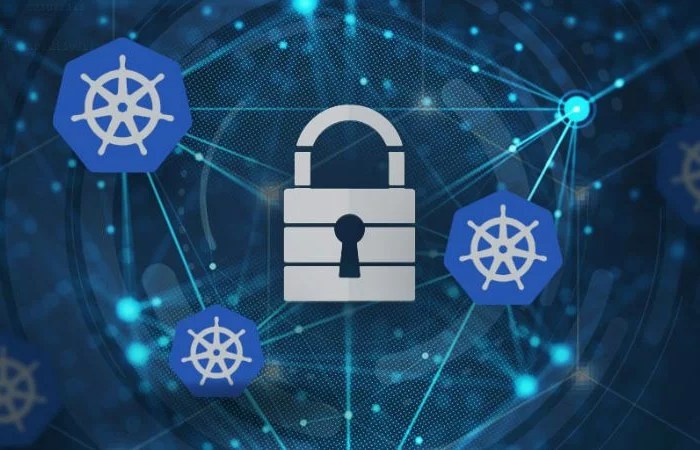DevSecOps refers to development, security, and operations. This method integrates security practices into the DevOps process, emphasizing the importance of security from the beginning of software development.
DevSecOps is a new concept. Cloud DevSecOps goes one step further by integrating the security component, and DevOps integrates development and operations continuously and interconnectedly.
As a result, security is built right into the cloud application, saving a lot of time and money in the event of a cyber attack.
This strategy is necessary because DevSecOps in cloud security appears to be a major benefit for the widespread adoption of cloud computing. This process includes security testing, monitoring, and continuous development and deployment, making the cloud application secure.
Understanding the scope and benefits of cloud DevSecOps can help you if you want to develop your software or application.
Importance of DevSecOps in Dealing with Cloud Security Challenges

While DevSecOps teams ensure product security during development and launch, IT departments strive to ensure the security of the company’s network and IT infrastructure.
Their responsibilities include system monitoring, risk analysis, security automation, and incident management. DevSecOps helps enterprises address cloud security challenges by effectively managing cloud security risks.
1. Open Environment
Adopting DevSecOps creates the basis for open dialogue between teams and business units. When DevSecOps becomes the core of your development, tracking and monitoring complex plans (such as cloud migration and security) and keeping all stakeholders informed is no longer a problem.
However, developing and implementing DevSecOps practices allows them to combat security threats and keep companies resilient over time.
2. Offering Cost-effective Security
Is it better to discuss the consequences of a security breach or try to prevent it? Organizations using DevSecOps eliminate these threats before they have a significant impact. By identifying and preventing incidents that could impact the internal IT environment, DevSecOps helps many companies reduce their business vulnerabilities.
This saves time and money by reducing the need to repeat the security vulnerability remediation process through fast and secure DevSecOps delivery. Because the security code does not involve any pointless re-wiring or modification, it is very safe. It is affordable and effective.
3. Storing Data at A Single Location
Teams can quickly develop applications that are still in development by using the system’s data management and DevSecOps component to collect data from various sources and feed it back into the innovation process. In short, DevSecOps implementation helps technical and operations teams analyze collected data and turn it into meaningful information.
Data concepts are continuously optimized under one roof, resulting in simplified CI/CD, which further helps save time during the product development cycle.
DevSecOps over Next-gen Cloud Security Tools

Rapidly evolving next-generation cloud security tools may address some critical gaps, but data and workflow integration remains a challenge.
While these tools offer security analytics for the cloud and application stacks, SecOps faces difficulties in managing the integration between these tools.
DevSecOps can solve this problem if you support it by investing in the following:
Solutions that extend security integration in SecOps and ITOps/DevOps environments.
Highly scalable security analysis that enables the use of on-premise and cloud infrastructure.
While DevOps implementation might focus on continuous monitoring of cycles and CI/CD tools, DevSecOps shifts security workflows to the left by providing DevOps and SOC teams with a common analytics platform.
Cloud DevSecOps offers:
- Pace of Innovation Using Security Automation
- Efficient Security Verification of Instance Deployments
- Timely risk-based actions
- Automated Incident Response and Resolution
It should be understood that DevSecOps in the cloud goes beyond CI/CD cycle management (as in DevOps) and is primarily about “security automation,” which is critical to cloud operations. According to the Global Security Trends Report for 2018, 45 percent of IT security stakeholders consider a DevSecOps solution to be one of the most critical organizational transformations needed to enhance security in the cloud environment.
Strategies for DevSecOps that Can Transform Cloud Security

For cloud DevSecOps to be effective, cloud security DevOps teams must work closely with other teams and monitor code quality across the entire application. Here, we’ve covered six key cloud DevSecOps deployment methods that can completely transform cloud security and cloud security solutions for your business:
1. Process Automation for Testing
Live testing is undoubtedly one of the principles or best practices of DevSecOps. This could be an inspiration for cloud DevSecOps. Automated testing improves the testing process by repeating tests, documenting results, and quickly providing feedback to the team.
Automated testing during development can improve overall productivity by eliminating errors in the code. You can speed up the entire cloud migration process, making migrating more resources to the cloud easier.
2. Analysis of Code
Most businesses should be able to change their programs regularly to respond to changing market conditions. Short delivery cycles make traditional security models unsuitable, although agile teams have modified to this trend. As a result, they disrupt your organization’s dynamic software release cycles and improve software productivity.
You can deliver superior cloud security risk management and code generation in compact, continuous releases by taking an agile approach to your teams’ security operations. Using cloud technologies for DevSecOps has two benefits: it adds code analysis to the QA process and allows you to scan for vulnerabilities quickly.
3. Compliance Tracking
Cloud technologies are used to process large volumes of data. Compliance with strict security laws such as HIPAA, GDPR, and SOC 2 can be difficult.
Implementing Cloud DevSecOps can transform and reduce the additional effort associated with conducting regulatory audits. Development teams can instantly gather evidence of compliance whenever new code is released or changed. This will help the company prepare for any unforeseen situation.
4. Vulnerability Management
Finding, testing, and patching any threats or vulnerabilities in new code submissions is critical to DevOps security. In addition to posting and running vulnerability checks, schedule regular security checks to help discover new bugs or vulnerabilities.
5. Change Management
Implementing the DecSecOps cloud computing approach requires a deep understanding of the change management process. Equipping your developers with the knowledge and tools needed to identify risks and take appropriate action before they become major problems improves the effectiveness of change management.
Additionally, giving developers a 24-hour cleanup window allows them to offer critical security measures regularly.
Conclusion
Cloud security protocols can be implemented using DevSecOps. Integrating security deliberations into every stage of the software development lifecycle allows organizations to ensure the integrity of their cloud environment, protect sensitive data, and proactively manage risk.
Enterprises can avoid cyber threats and comply with regulatory obligations by implementing managed DevOps services that promote collaboration, automation, continuous monitoring, and security principles.

